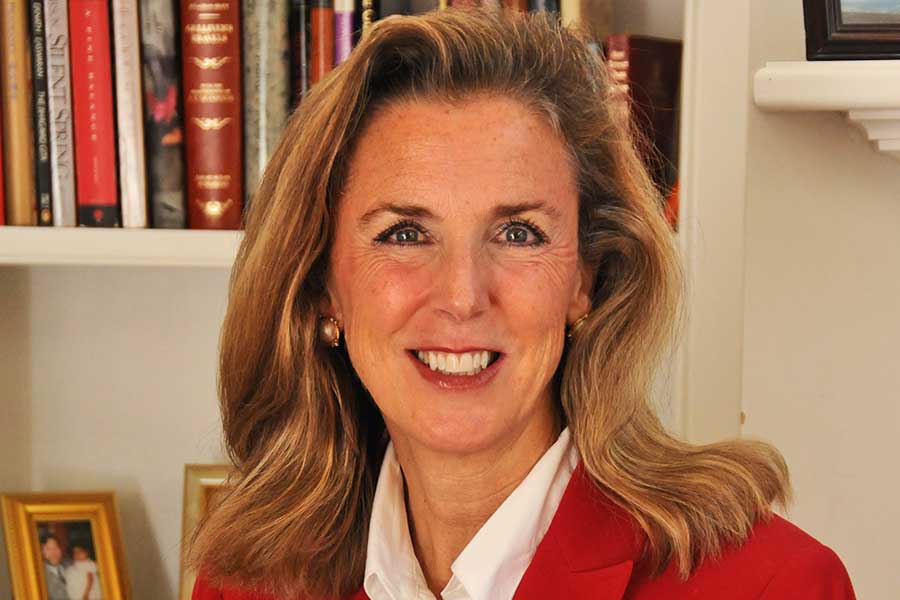
Office sought: U.S. Senator for Pennsylvania
Party: Democrat
McGinty is a Northeast Philadelphia native who earned a law degree from Columbia Law School and went on to serve as a White House advisor on environmental issues under then-President Bill Clinton. She served as secretary of the Pennsylvania Department of Environmental Protection and later chief of staff to Pennsylvania Gov. Tom Wolf.
McGinty’s bid to to unseat Republican U.S. Sen. Pat Toomey is one of the most closely watched Senate races in the nation.
PGN sent the same set of questions regarding LGBT issues to both McGinty and Toomey; despite numerous requests, Toomey did not submit his responses by presstime.
For more information on McGinty’s campaign, visit www.katiemcginty.com.
PGN: Will you co-sponsor the Equality Act? What do you think is the best strategy to move this bill forward in the next Congressional session?

KM: I would proudly co-sponsor the Equality Act. My entire career I have brought people together to advance policies that protect Americans and improve our economy. There is a growing coalition in this country of community leaders, businesses and members of both parties that recognize that discrimination in any form is unacceptable and harmful to the fabric of our country. As Senator, I’ll amplify these voices for change and use my experience working with both sides of the aisle to fight for policies that will end discrimination in our country.
PGN: Republican nominee Donald Trump has pledged that, if he is elected, he would sign the First Amendment Defense Act. What steps would you take, if elected, to counter that effort?
KM: I strongly oppose legislation like the First Amendment Defense Act and believe it is completely unacceptable to make discrimination legal against anyone, including members of the LGBT community. In the Senate, I would oppose this bill while fighting for critical legislation like the Equality Act, which aims to end discrimination for everyone.
PGN: In light of this summer’s mass shooting in Orlando, what confluence, if at all, do you see between the issues of hate crimes and gun violence? And how does your approach to gun control address that?
KM: I believe that guns offer those with hate in their heart an easily accessible pathway to turning that hate into violence. My approach to gun control involves taking commonsense steps to keep weapons out of the hands of those who have previously been convicted of a hate crime and those who are mentally ill, as well as passing legislation that ends the sale of military-style weapons and high-capacity magazines.
PGN: Violence against trans women, especially women of color, has been reported at alarming rates in recent years. What is your plan to address this issue?
KM: Violence against anyone — including trans women, trans women of color and women of color — should not be tolerated. I support increasing awareness of the violence that occurs against trans women and men, including stricter hate-crime reporting that provides accurate information on hate crimes committed against trans men and women. I also support increasing funding for community-outreach programs that create safe spaces for trans people and trans people of color to build relationships with law enforcement.
PGN: How do you plan to advocate for racial justice, particularly in connection to fair law-enforcement practices?
KM: As the daughter of a police officer who walked the beat in Philadelphia for over 20 years, I know firsthand how important it is for the police to have a relationship with the communities they serve. If elected, I will be an advocate for policies that encourage officers to interact positively with their communities and rebuild the connection between those who serve and those they protect.
PGN: How do you plan to demonstrate bipartisanship?
KM: Throughout my time at the White House Council of Environmental Quality, the Pennsylvania Department of Environmental Protection and as Gov. Wolf’s chief of staff, I have worked across the aisle to find common ground and accomplish goals. Being from opposing political parties does not mean complete and total disagreement on every issue, and it’s important to zero in on the issues that matter to other legislators and their constituents and work together to solve those issues.
PGN: How will your economic policies affect LGBT residents?
KM: I believe that there are many steps we can take to make our economy work for everyone, including the LGBT community. First and foremost, we can ensure equal pay for equal work by passing the Paycheck Fairness Act. Workers doing the same job deserve the same wage — regardless of their gender identity or sexual orientation. Other policies I support — like affordable childcare and higher education, putting an end to discrimination and rebuilding our manufacturing sector in the U.S. — all expand opportunity and fairness to members of the LGBT community and beyond.